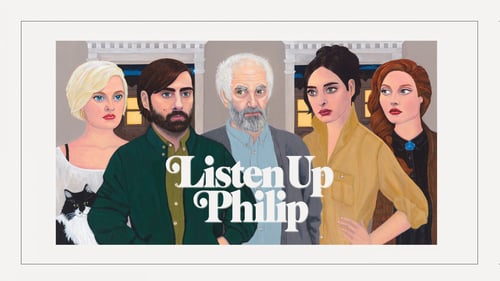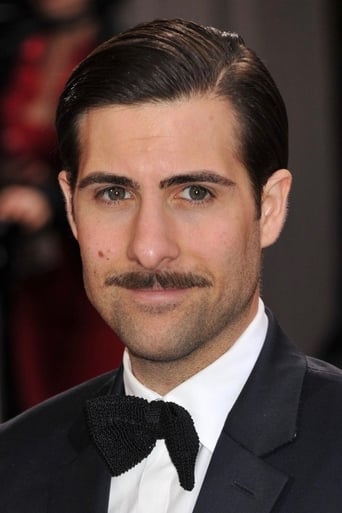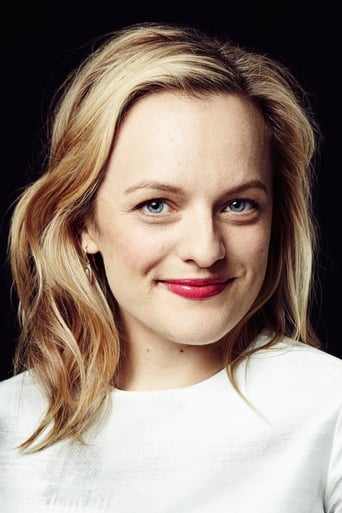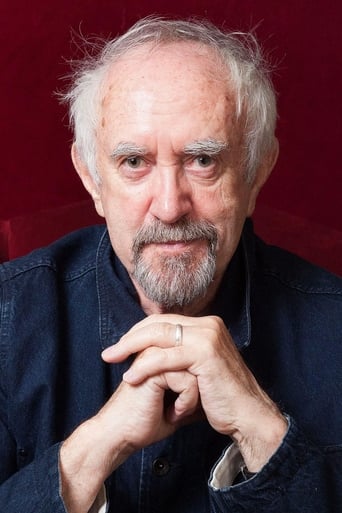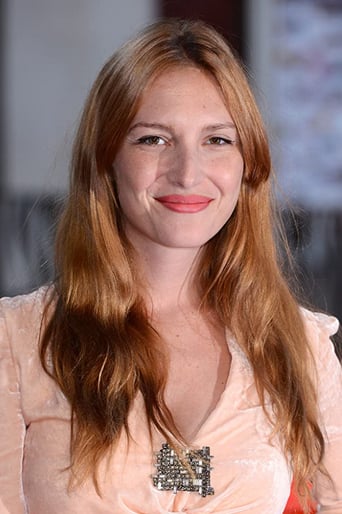MamaGravity
good back-story, and good acting
Dorathen
Better Late Then Never
ChampDavSlim
The acting is good, and the firecracker script has some excellent ideas.
Sammy-Jo Cervantes
There are moments that feel comical, some horrific, and some downright inspiring but the tonal shifts hardly matter as the end results come to a film that's perfect for this time.
Ladiloque Boh
While this film is certainly not for mainstream audiences it depicts fairly well a typical position modern intellectuals-writers put themselves into when they stop "listening", learning and growing up due to either success or failures.Only some illness can stop you from being smart, but being smart is not enough to live a fulfilling and authentic life. Especially when (what you believe is) your authentic self is actually the main obstacle to that, by aiming at systematically despise and mistrust the people around you.The first 10 minutes already may remind you (also for the main actor) some early Wes Anderson movies or some Woody Allen ones: if you like them, you'll - at least mildly - appreciate this too. This is the first movie from Perry I watch and I'll look forward to see others but as a first impression I'd like him to put his efforts in more genre oriented stuff: being smart is not enough to make a fulfilling movie too. The difficulties (or impossibility) in communicating between people shouldn't become a 2h film themselves or... none obviously will like it. Whatever his objectives in filming and showing us intelligence together with emptiness, loneliness and crisis, I'm sure he can accomplish them by writing a richer story behind them.
tao902
A comedy about a young writer who, upon the publication of his second novel, increasingly alienates himself from his girlfriend and other friends through his arrogant behaviour. He turns for 'intellectual' and 'authorial' support to an ageing author he respects who is as obnoxious as he is.The humour is meant to come from mocking these unappealing characters but the film itself isn't particularly appealing either. As a satire on the possible pretensions of the publishing world it suffers from lack of originality, an excess of cynicism and contrived delivery.The overblown irony of the voice-over further ensures this comedy isn't that funny despite a few amusing lines. What presumably intends to be a comedy about annoying people end up being annoying itself.
Moviegoer19
About midway through watching this film, I wondered whether it had been written and/or directed by Woody Allen, mainly because of the narration. I found the narration, both use of it and its content, to be very similar to what Woody has done often. I enjoyed having a voice-over both narrating and analyzing the feelings and behaviors of the characters. As others have said, I felt the first half was more engaging, and also found Elizabeth Moss's performance to be excellent. I'm not sure why Jason Schwartzmann was chosen for the male lead, but I'm assuming it was intentional to have someone who looks somewhat like a werewolf and at the same time plays a character who is insufferably arrogant. The film was outstanding and original in the dynamics between the characters which for the most part were deep and complex. I found there were also some humorous moments. Overall I'd say see it especially if you enjoy watching films about people who spend a lot of time thinking.There was one thing I found confusing and that was the time frame: at first I assumed it was the present, nothing to think otherwise. Then I noticed the phones, all house phones, all had wires attached to them. There were no cell phones, no computers. Writers used electric typewriters. Yet I saw nothing else to back up what looked like a pre- 90's or even 80's time frame.
Sergeant_Tibbs
The story of the struggling writer is not unknown to Jason Schwartzman. He lead the brilliant but oh-so-short HBO show Bored To Death, about a writer who has to turn to detective work for inspiration and cash on the side. It was fresh, because that was just a framing device for something more fun. Listen Up Philip uses struggling to write as the backdrop to cynical drama and sour "I told you so's." If the walls could talk, they would gossip about the fights that have taken place over the years. It opens with a sequence in which Schwartzman's Philip celebrates finishing his second book by rubbing it in the noses of those who didn't believe in him. That's where he gets his satisfaction. That's the bitter world of Listen Up Philip. Every character is selfish, and miserable for it. The result is a film that's difficult to sympathize with the characters, especially Schwartzman, but it doesn't necessarily ask us to. They may be self-pitying victims of their own hostility, but they eventually do come to self-realizing conclusions, if too late. The film suggests that to make great art (in the form of novels) it requires isolation, cut off from the city and the ones you love, alienating them – as if this is the only way. The jerky behaviour aside, not just general standoffishness but frequent overlapping of relationships, it begs the obvious question of "is it worth it?" Well, no, it's not. Perhaps there are many creatives in the world that need this lesson, either way writer/director Alex Ross Perry is keen to explore it and take us with it. With a less familiar cast, this would definitely be labeled a mumblecore film. It borrows a French New Wave aesthetic (complete with a jazzy score) featuring rugged and dark hand-held 16mm photography. It can be a little sloppy with a lack of restraint, having some sequences comprised entirely out of dizzying close-ups. It does however add important weight to the drama and fortunately grow more confident by the second half of the film. This style is inherently intimate, if not necessarily engaging, and we feel like voyeurs. In turn, the humour of the film just doesn't work. It didn't elicit a laugh from me, only a smirk. It's not necessarily cringe-worthy, it's just the offbeat nature of it doesn't land in this environment, despite its 'Laugh' categorization at this festival. It's the ensemble that gives the drama the atmosphere the film needs. The script is otherwise serviceable, with a couple of idiosyncratic if indulgent licks scattered throughout. Instead it's more interested on being on the verge of tears. Elizabeth Moss is the undeniable highlight. She's always been fascinating to watch on AMC's Mad Men, and here she shows the ferocity and vulnerability that makes Peggy compelling. Her character may feel extraneous, but her presence is most welcome. Also great, but on a lesser scale, is Jonathan Pryce, who teeters fine lines with skill and makes a character that could've otherwise been trite (aka the cautionary vision of the future for Philip) believable and endearing. However, the film often seems too aimless with no end game in sight. It feels more organic, but it's missed potential. In the second half, the narrative bounces through the three characters, a little clumsily, but it's better for exploring the characters with a bit more depth than it could have missed with a straightforward approach. The style is a little free form, which can feel quite liberating, but mostly hints at a lack of discipline in Perry. Even with the film's rawness, it does feature touches of Wes Anderson with a Tenenbaums-esque articulate and omniscient narration – one that only barely justifies itself – as well as insert shots of books inscribed with in- jokes. Maybe the involvement of Schwartzman just attracts that unique style, although here it's rarely connected to him. The cast saves Listen Up Philip from being a complete chore but it still suffers from unsympathetic characters and tired clichés. Save the struggling writer scripts for the exercise pile, please.6/10Read more @ The Awards Circuit (http://www.awardscircuit.com/)






